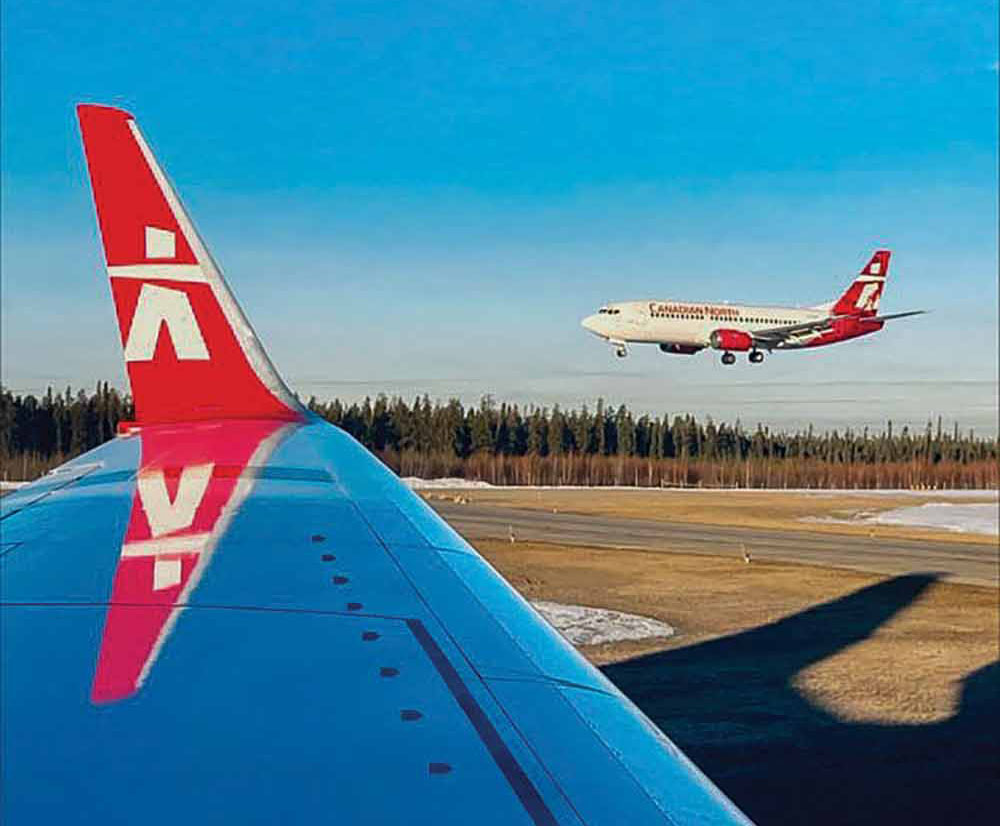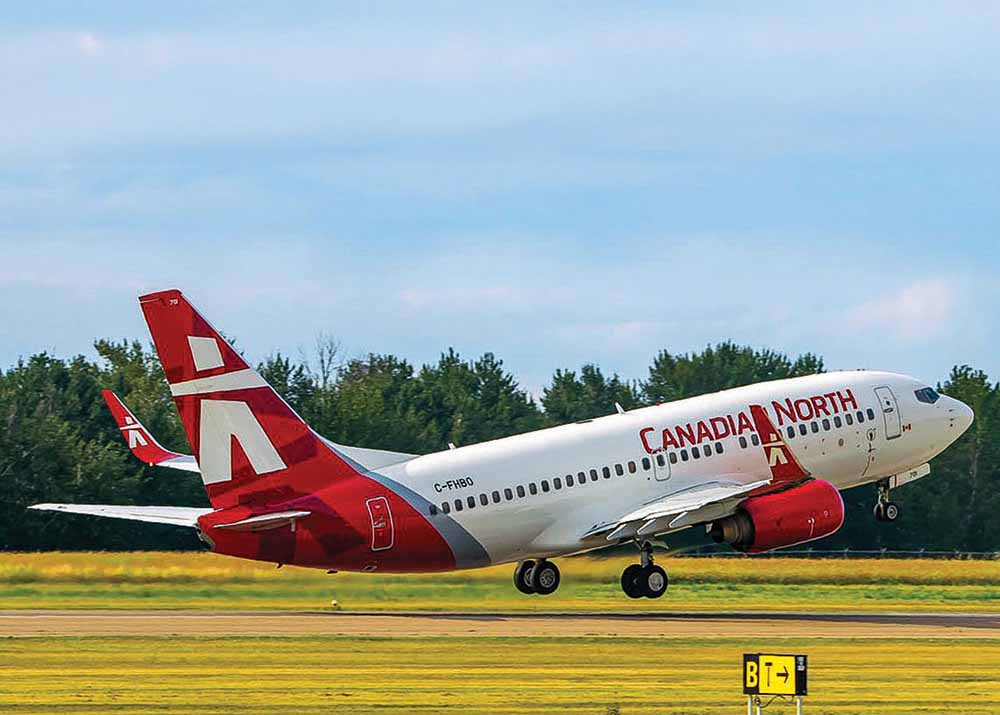Canadian North

A view from a Canadian North aircraft of one of the airline’s B-737s landing at Ottawa/Macdonald-Cartier International Airport. Photo: Kaitlyn Bumstead
At A Glance
Pilots joined ALPA: 2008
Number of pilots/flightcrew members: 235
Pilot bases: Ottawa, Ont.; Yellowknife, N.W.T.; and Edmonton and Calgary, Alb.
Hubs/key markets: The Canadian Arctic and industrial charters for the oil and gas sector
Headquarters: Ottawa, Ont.
Operations: Canadian North operates scheduled passenger and cargo services throughout the Canadian Arctic, providing workforce transportation for the oil and gas industry and ad-hoc charters in Canada, the U.S., Mexico, and the Caribbean.
Fleet: B-737s, ATR 42s, and ATR 72s
Over the past year, Canadian North pilots have diligently prepared for their upcoming January 2026 contract negotiations. This effort has been a collective endeavour, with the pilot group working tirelessly to strengthen its position at the bargaining table. The pilots’ Master Executive Council (MEC) has been instrumental in building unity through strong and consistent communications, tapping F/O Sarah Vaughan as the Communications Committee chair. Supported by ALPA staff, she successfully coordinates the flow of information between ALPA national, MEC leaders and committees, and the pilots, ensuring everyone remains well informed and unified.
At the end of 2024, the MEC signed two letters of agreement. One modified reassignment rules to clarify how pilots may be reassigned to new duties, and the other expanded opportunities for voluntary overtime.
In January, the pilot group was scheduled to hold MEC officer elections with all Canadian North pilots in good standing able to participate by running for office or supporting their peers. Together, they’re forging a stronger and more unified pilot group.


